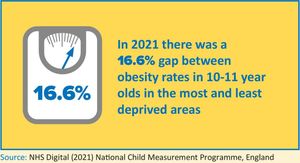The devastating impact of climate change continues to ripple across the globe, becoming more evident with each passing year. Recent studies and events unravel the layers of this crisis, emphasizing the urgent need for effective action.
One of the most alarming findings this year came from Canada, where researchers published the largest study of the 2023 wildfire season. It revealed how extreme heat and prolonged drought were the primary catalysts behind the record-breaking wildfires, which burnt down 150,000 square kilometers - seven times the norm.
Piyush Jain, one of the study's authors, stressed, "It is inescapable" to link extreme temperatures to the fires. This season forced 232,000 Canadians from their homes, with smoke traveling as far as Western Europe.
The study highlighted alarming climate projections, noting the conditions seen during the wildfire season could represent the norm by 2050 under severe carbon emission scenarios. Alarmingly, temperatures exceeded the historical average by 2.2 degrees Celsius, leading to previously unsuspected phenomena like 'flash droughts,' especially observed recently in Quebec.
While the West faced long-standing droughts, Quebec experienced this quick transition to drought. Jain described flash droughts as "an emergent process"—a situation still being uncovered by scientists.
Regions hit hardest by wildfires experienced unprecedented durations of extreme fire weather, with some areas facing up to 60 days of stagnant, high-pressure systems. These blocking events hastened the snowmelt, during which forests remained dangerously exposed to wildfires.
Interestingly, the fires predominantly resulted from natural causes; human-induced flames only accounted for seven percent of the area burned, with the majority ignited by lightning. The findings also suggested prior burn areas faced heightened risks, with thousands of square kilometers of forest now vulnerable to what the report termed "regeneration failures."
This situation poses the risk of permanent shifts from forest ecosystems to grasslands or shrublands, as previously burned areas struggled to recover. "If immature trees cannot propagate, species might vanish from these landscapes," Jain noted.
It echoed earlier research indicating climate change could make conditions conducive to these devastating fires up to three times more likely. With warnings for future seasons, climate change is presenting grim realities, as Jain concluded, "By mid-century, weather conditions like those of 2023 could be normal, leading to even more severe fire seasons."
Meanwhile, environmentalists expressed alarm over the political climate surrounding climate science and public services. A controversial initiative known as "Project 2025" aims to dismantle key federal agencies, including the National Weather Service.
This reorganization could privatize necessary public services, jeopardizing effective responses to extreme weather events increasingly prevalent due to climate change. David Kieve, president of the Environmental Defense Fund Action, voiced concerns, stating, "Life-and-death warnings could be jeopardized with such privatization."
Advocates argue dismantling the National Weather Service would not only undermine accurate forecasting but would also erode public trust and safety, especially during climate-induced emergencies. With climate change increasingly bringing extreme weather patterns, eliminating these agencies would put the public at risk for exacerbated natural disasters.
Currently, alarming statistics about heat and stroke severity raise concerns for public health. A recent study found individuals living in neighborhoods vulnerable to heat exposure faced increased risks of severe strokes.
Researchers at Northwell Health discovered patients from high Heat Vulnerability Index areas—reflecting heat-related mortality risk—were 40% more likely to suffer severe strokes. This raises questions about the interplay between social determinants of health and environmental factors exacerbated by climate change.
Jason Wang, the lead author of the research, emphasized the importance of recognizing how societal issues, such as poverty and lack of greenspace, contribute to community health disparities. This study calls for relevant policy changes to tackle these intertwined health and environmental challenges.
With mounting evidence and health warnings, the importance of collective action to combat climate change has never been clearer. There's no doubt the fight against climate change intersects with health, economic, and infrastructural challenges, and each requires urgent attention.
Adapting to these changes also means integrating climate resilience planning within urban development. Urban planning studies indicate developments can worsen flooding risks, especially under climate changes, signaling the need for smarter design choices.
Shannon Udasin, reporting on the findings from UC Irvine, stated, "Urban density and building layouts can intensify flood risks. A new framework has been suggested for urban planners to evaluate land usage impacts on flooding hazards."
This reflects the pressing need for sustainable urban design to mitigate flood risks moving forward, linking environmental stability with infrastructure choices. The significant need for policy reforms alludes to broader influences on climate change resilience.
Lastly, international responses continue to evolve, but not without contradictions. While climate-focused candidates push for systematic changes, proposals to boost fossil fuel exports seem to mend ties with unsustainable practices.
For example, Donald Trump's revival of liquefied natural gas (LNG) export proposals could lead to increased sales to China, neighboring the assertive rhetoric against the nation. This showcases the complicated relationship between politics and climate commitments.
Despite the headlines and differing agendas, grassroots movements continue to advocate for accountability and action—pushing back on cynicism surrounding climate commitments. Organizations launched significant campaigns demonstrating economic benefits tied to embracing climate policies.
This campaign targets economic arguments supporting environmental action and signals growing public awareness of intertwined economic and climate concerns. Their focus on economic incentives to push climate policies is indicative of changing narrative techniques aimed at mobilizing actions for climate resilience.
Through persistent efforts and unified voices, the course toward climate mitigation becomes clearer. Yet, all sectors of society, from individuals to governments, hold responsibilities to shape the narrative toward eco-conscious futures.
With all of these interconnected roles coming to play, now is the time for collective action to mitigate the threats of climate change effectively and explore solutions without hesitation. Only through foresight, collaboration, and strong commitments can significant advancements happen against climate change, safeguarding our communities and ecosystem for years to come.



